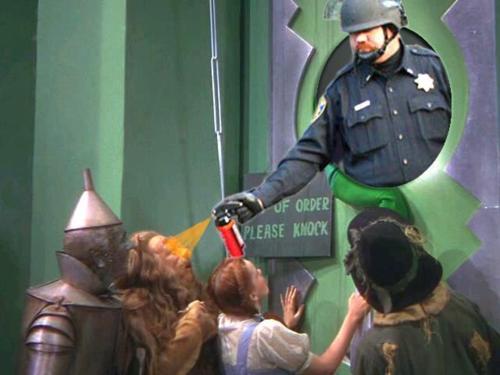


This weekend, a series of photographs - images of a riot-gear-wearing cop shooting a group of students in the face with pepper spray - made their transition from journalistic documents to sources of outrage to, soon enough, Official Internet Meme. (“Expectation,” of course, being defined by the Epiphanator itself.) Occupy is, like so many other movements, subject to “ the tyranny of recency.”īut that may well have just changed. Occupy’s story - like all stories of ongoing political movements that are told by traditional producers of daily journalism - has been told episodically, in staccato rhythms that emphasize explosive ruptures in expectation.

(Which is to say: effectively punishing the notion of a “movement” itself.) This bias toward the spiky over the sticky is a defining feature, as well, of the daily workings of the traditional media (and of their great organizational mechanism, the Epiphanator): Occupy’s much-discussed lack of a singular identity has been not only kind of the whole point, but also, to some extent, the result of the way the movement has been mediated by a press that tends to reward newness over endurance. It’s worth returning, for a moment, to the idea of trending topics algorithms, which reward discrete events over ongoing movements, favoring spikes over steadiness, effectively punishing trends that build, gradually, over time. Particularly at the level of the mass culture. And it could also be true that the features that may give Occupy, potentially, enduring power as a movement - its malleability, its permissiveness, its ability to act as an interface as well as an event - might also be the forces that, day to day, challenge its ability to convene attention. That could be true (though “very hard,” of course, is quite different from “impossible”). Which is a problem, traditional-press-coverage wise, because: “In addition to the 5 W’s - who, what, when, where and why - the media are obsessed with a sixth: what’s next? Occupy Wall Street, for all its appeal as a story, is very hard to roll forward.” “Occupy Wall Street left many all revved up with no place to go,” he writes. In his Times column this morning, David Carr wonders about the future of the Occupy Wall Street movement and, specifically, its fate as an ongoing topic of mass-media conversation.


 0 kommentar(er)
0 kommentar(er)
